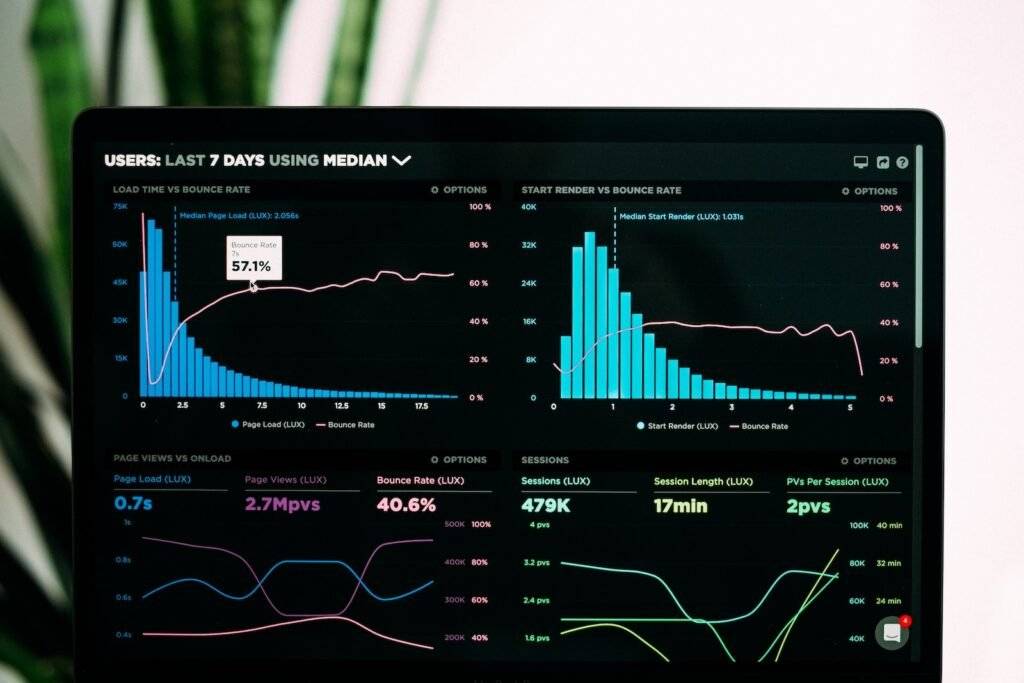The Role of On-Page Optimization in SEO Rankings
On-page optimization plays a crucial role in determining SEO rankings. It involves optimizing various elements of a webpage to make it search engine friendly and improve its visibility in search results. When done right, on-page optimization can significantly boost a website’s organic traffic and overall performance in search engine rankings.
One key aspect of on-page optimization is the strategic use of keywords. By conducting thorough keyword research and incorporating relevant keywords into the page’s title, meta tags, headings, and content, website owners can signal to search engines the relevance of their page to specific search queries. However, it’s important to strike a balance and avoid excessive keyword stuffing, as search engines have become increasingly sophisticated in identifying and penalizing such practices. Instead, the focus should be on creating high-quality, informative content that addresses the needs and interests of the target audience, while naturally incorporating the primary keyword and its variations.
Understanding the Importance of Quality Content in SEO Ranking Factors
In the world of SEO, quality content reigns supreme. While various factors contribute to a website’s search engine rankings, quality content plays a pivotal role. It not only attracts readers and engages them but also sends positive signals to search engines.
First and foremost, quality content ensures that your website provides value to its visitors. When users find helpful, informative, and engaging content, they are more likely to stay on your site longer, explore multiple pages, and share it with others. This user engagement sends positive signals to search engines, indicating that your site is valuable and relevant. As a result, search engines are more likely to display your website higher in search results, attracting even more organic traffic.
Moreover, quality content is a key driver of backlinks, which are crucial for SEO rankings. When your content is informative, well-researched, and unique, other websites are more likely to link back to it as a reputable source. These backlinks not only increase your website’s authority but also indicate to search engines that your content is valuable and trustworthy.
In summary, quality content is not just a buzzword in the SEO world. It is an essential element in determining search engine rankings. By providing value to your visitors, engaging them, and attracting backlinks, quality content helps improve your website’s visibility and authority in the online realm.
The Significance of Backlinks in Determining SEO Rankings
Backlinks play a crucial role in determining SEO rankings. They serve as a vote of confidence from other websites, indicating that your content is valuable and trustworthy. Search engines, such as Google, consider backlinks as a signal of authority and relevance, which can significantly impact your website’s position in search results.
High-quality backlinks from reputable websites carry more weight than numerous low-quality ones. It’s important to focus on acquiring backlinks from relevant sources within your industry. These “natural” backlinks demonstrate to search engines that your website is an authoritative and reliable source of information.
Additionally, the anchor text used in backlinks is also important. When other websites link to yours using anchor text that includes relevant keywords, it helps search engines understand the context of your content and increases its visibility for those specific search terms. However, it’s important to note that excessive keyword stuffing in anchor text can be seen as spammy and may negatively impact your SEO rankings.
In conclusion, backlinks are a significant factor in determining SEO rankings. By acquiring high-quality backlinks from reputable sources within your industry, you increase your website’s authority and relevance, enhancing its visibility in search results. However, it’s crucial to focus on natural link building strategies and avoid keyword stuffing to ensure long-term success in SEO.
How User Experience Impacts SEO Rankings
User experience plays a crucial role in determining SEO rankings. When users visit a website, they expect a seamless and intuitive browsing experience. If a website is slow to load, difficult to navigate, or lacks relevant and engaging content, users are more likely to leave, resulting in a high bounce rate. Search engines take notice of this and interpret it as a sign that the website is not providing a satisfactory user experience. Consequently, this can negatively impact SEO rankings.
In addition to bounce rate, other user experience metrics, such as time on site, pages per session, and conversion rate, also contribute to SEO rankings. If users spend a significant amount of time on a website, explore multiple pages, and complete desired actions, search engines interpret this as a positive user experience. As a result, websites with better user engagement metrics are more likely to rank higher in search engine results pages (SERPs). To improve user experience, it is important to optimize website design, ensure fast loading speed, provide relevant and valuable content, and make navigation intuitive and user-friendly.
The Influence of Mobile-Friendliness on SEO Rankings
Mobile-friendliness has become a crucial factor in determining SEO rankings. With the increasing reliance on mobile devices for internet browsing, search engines have adapted their algorithms to prioritize websites that provide a seamless mobile experience.
A mobile-friendly website is one that is designed and optimized to be easily viewed and navigated on any mobile device, such as smartphones or tablets. This includes responsive design, which ensures that the website layout and content adjust automatically to fit different screen sizes. Additionally, mobile-friendly websites often have faster load times and streamlined navigation, making it easier for users to find the information they need.
The influence of mobile-friendliness on SEO rankings cannot be overstated. Search engines prioritize mobile-friendly websites because they provide a better user experience. When users can easily navigate and interact with a website on their mobile devices, they are more likely to stay on the site, engage with the content, and convert into customers. As a result, search engines reward mobile-friendly websites with higher rankings, ensuring that users can find and access relevant information on any device they choose to use.
The Role of Page Loading Speed in SEO Rankings
Page loading speed plays a crucial role in determining SEO rankings. With the increasing emphasis on user experience, search engines prioritize websites that load quickly and provide a seamless browsing experience. When a webpage takes too long to load, users are more likely to abandon it and seek alternatives, leading to a higher bounce rate. This negatively impacts user engagement and, consequently, the website’s rankings.
Not only does page loading speed affect user experience, but it also impacts search engine crawlers. Slow-loading pages require more time for search engine bots to access and index, which can result in incomplete or delayed indexing. This can hinder the visibility of your website in search results, as search engines prioritize sites that are easily accessible and efficient to crawl. Therefore, optimizing your page loading speed is essential for improving user experience, reducing bounce rates, and ultimately enhancing your SEO rankings.
The Impact of Social Signals on SEO Rankings
Social signals play a significant role in determining SEO rankings. These signals refer to the interactions and engagement that occur on various social media platforms, such as likes, shares, comments, and mentions. Search engines consider these signals as a measure of a website’s popularity, credibility, and relevance.
When a website receives a high number of social signals, it sends a positive indication to search engines that the content is valuable and trusted by users. As a result, search engines are more likely to rank the website higher in search results. This is because social signals are seen as an endorsement of the content by real people, and search engines strive to provide the most relevant and useful content to their users.
In addition to boosting SEO rankings, social signals also contribute to increased visibility and exposure. When users engage with content on social media, it introduces the website or brand to a larger audience. This amplifies the reach of the content and can lead to more traffic, backlinks, and conversions. Therefore, incorporating social media strategies into SEO efforts is crucial for improving rankings and overall online presence.
The Importance of Website Security in SEO Ranking Factors

Website security is an essential factor in determining SEO rankings. With the increasing number of cybersecurity threats, search engines prioritize websites that prioritize security measures. A secure website not only protects user data but also enhances user trust and confidence in the site.
One way website security affects SEO rankings is through the use of HTTPS encryption. Search engines like Google consider HTTPS as a ranking signal, giving secure websites an edge over their non-secure counterparts. Implementing HTTPS ensures that data transmitted between the user’s browser and the website is encrypted, safeguarding it from potential eavesdropping or tampering.
Moreover, a secure website protects against malware and hacking attempts, which can negatively impact user experience and trust. Search engines take into account factors such as website uptime, malware presence, and blacklisting status when determining rankings. A compromised website not only puts users at risk but also risks being flagged by search engines, resulting in a significant drop in rankings and visibility.
In conclusion, website security plays a crucial role in SEO rankings. A secure website not only enhances user trust and confidence but also provides vital protection against cybersecurity threats. Implementing measures such as HTTPS encryption and malware prevention not only improve search engine visibility but also ensure a safe and reliable user experience.
The Role of Domain Age in Determining SEO Rankings
Domain age is a significant factor in determining SEO rankings. Search engine algorithms consider domain age as an indicator of a website’s trustworthiness and authority in its niche. Older domains are often seen as more reliable and credible sources of information, which can positively impact their rankings in search engine results pages (SERPs). This is because they have had more time to establish their online presence, build a solid backlink profile, and gain user trust.
However, it is important to note that domain age alone does not guarantee high SEO rankings. While an older domain may have an advantage over a brand new one, its content, user experience, backlinks, and other SEO factors also play a crucial role. Ultimately, search engines aim to deliver the most relevant and useful results to users, so the quality and relevance of a website’s content and overall optimization still hold utmost importance.
The Influence of Click-Through Rate on SEO Rankings
Click-through rate (CTR) plays a crucial role in determining SEO rankings. When a user performs a search and sees a list of results, the CTR is the percentage of users who click on a particular link. Search engines consider CTR as an indicator of the relevance and quality of a website’s content. If a page consistently receives a high CTR, it suggests that users find the content valuable and engaging. As a result, search engines are more likely to rank that page higher in the search results.
There are several factors that can influence CTR, such as the position of the search result, the meta description, and the title tag. Websites that have optimized these elements and provide compelling titles and descriptions are more likely to attract clicks from users. Additionally, incorporating relevant keywords in the title and meta description can increase the visibility and clickability of a webpage. By focusing on improving CTR, website owners can enhance their SEO rankings and increase organic traffic to their site.
Understanding the Role of Domain Authority in SEO Rankings
Domain Authority (DA) is a crucial factor in determining the ranking of a website in search engine results pages (SERPs). Developed by Moz, domain authority is a metric that predicts how well a website will rank on search engines. It is influenced by various factors such as the quality and quantity of inbound links, the relevance of the content, and the overall trustworthiness of the domain.
A high domain authority indicates that a website is authoritative and credible within its niche. This means that it is more likely to rank higher in search results and attract organic traffic. On the other hand, a low domain authority may lead to lower search rankings and reduced visibility.
While it’s important to note that domain authority is not a direct ranking factor used by search engines, it serves as a useful benchmark for comparing the strength of different websites. By understanding and improving domain authority, website owners can enhance their chances of achieving higher search rankings, increasing visibility, and ultimately driving more targeted traffic to their site.
The Significance of User Engagement Metrics in SEO Ranking Factors

User engagement metrics play a vital role in determining the SEO rankings of a website. Search engines like Google consider user engagement as a strong signal of the quality and relevance of a website’s content. Metrics such as bounce rate, time on page, and page views provide valuable insights into how users interact with a website.
High user engagement metrics indicate that visitors are finding the content valuable and staying on the website for longer periods. This signals to search engines that the website is providing a positive user experience and offering relevant information. On the other hand, low user engagement metrics may suggest that the content is not engaging or useful, leading to a lower ranking in search results.
Furthermore, user engagement metrics are closely tied to the concept of dwell time, which refers to the amount of time a user spends on a webpage before returning to search results. Dwell time is considered an important ranking factor as it reflects user satisfaction with the content. Websites with longer dwell times are more likely to rank higher in search results, as search engines interpret this as a sign of high-quality content that meets the user’s needs.
In conclusion, user engagement metrics are essential in SEO ranking factors. Website owners and marketers should strive to create engaging, informative content that keeps users on their site for longer durations. By understanding and improving user engagement metrics, websites can enhance their visibility in search results and attract more organic traffic.
The Impact of Site Architecture on SEO Rankings
Site architecture plays a crucial role in determining the SEO rankings of a website. A well-structured and organized site architecture enhances user experience and makes it easier for search engines to crawl and index the website. When the site architecture is clear and logical, it allows search engines to understand the hierarchy and relationships between different pages.
One important aspect of site architecture is the navigation structure. A well-designed navigation menu enables users to easily navigate through the website and find the information they are looking for. This improves user engagement and dwell time, which are important factors for SEO rankings. Additionally, a clear navigation structure allows search engines to crawl and index all the important pages on the website, ensuring that they are included in search engine results.
Another crucial factor in site architecture is the URL structure. A clean and descriptive URL not only helps users to understand the content of the page but also provides valuable information to search engines. Including relevant keywords in the URL can improve the visibility of the page in search engine results. Moreover, a well-structured URL hierarchy helps search engines to understand the relationship between different pages and their importance within the website.
In conclusion, site architecture plays a significant role in SEO rankings. A well-structured and organized website enhances user experience, improves crawlability, and boosts the visibility of the website in search engine results. It is essential for website owners and SEO professionals to pay attention to the site architecture and ensure that it is optimized for both users and search engines.
The Role of Structured Data Markup in SEO Ranking Factors
Structured data markup plays a crucial role in influencing SEO ranking factors. By providing search engines with additional context and information about the content on a website, structured data helps improve the visibility and relevance of a webpage in search engine results.
One of the main benefits of structured data markup is that it enables search engines to better understand the content and purpose of a webpage. By implementing structured data markup, website owners can provide search engines with specific details about their content, such as product information, reviews, events, and more. This allows search engines to display more accurate and informative snippets in search results, which can boost organic click-through rates and ultimately improve SEO rankings.
Structured data markup also helps websites stand out in search engine results by providing rich snippets. These are enhanced search results that go beyond the basic title and meta description. With structured data markup, websites can display extra information, such as ratings, prices, and availability, directly in the search results. This can significantly increase the visibility and click-through rates of a webpage, ultimately leading to higher SEO rankings. Overall, implementing structured data markup is an important SEO strategy that can greatly enhance a website’s visibility, relevance, and ultimately, its ranking in search engine results.
The Influence of Local SEO Optimization on Rankings
Local SEO optimization plays a crucial role in determining search engine rankings for businesses that rely on local customers. By focusing on optimizing their online presence for specific geographical areas, businesses can increase their visibility to local customers and improve their chances of appearing in local search results.
One of the key factors in local SEO optimization is ensuring that the business’s website contains accurate and up-to-date information about its location, contact details, and operating hours. This information should be prominently displayed on the website and also optimized for search engines, such as by including relevant keywords and meta tags. Additionally, businesses can enhance their local SEO efforts by listing themselves on popular online directories and review sites, as well as by actively engaging with local customers through social media and other platforms.
By implementing effective local SEO optimization strategies, businesses can improve their chances of being found by local customers and increase their visibility in search engine rankings. This not only helps to drive more traffic to their website but also enhances their credibility and reputation within their local community. As local search becomes increasingly important for businesses, investing in local SEO optimization is a smart and strategic move towards driving more targeted traffic and boosting overall online visibility.
The Importance of Relevant Keywords in SEO Ranking Factors

Keywords play a crucial role in determining a website’s SEO rankings. When it comes to optimizing your website for search engines, relevant keywords are the foundation on which your rankings are built. By including keywords that align with what users are searching for, you increase the chances of your website appearing in the search results.
Relevant keywords help search engines understand the content and purpose of your web pages. When you strategically incorporate these keywords into your website’s titles, headings, meta descriptions, and body text, you are signaling to search engines that your website is a valuable source of information for users. This not only improves your chances of ranking higher in search results but also enhances the user experience by providing them with relevant and useful content.
In addition to optimizing your website’s content for search engines, relevant keywords also help your website attract the right audience. When users search for specific keywords related to your industry or niche, it’s essential that your website appears in the search results. By incorporating these relevant keywords into your website’s content, you increase your visibility to potential visitors who are actively searching for information or products related to your business.
Overall, the importance of relevant keywords in SEO ranking factors cannot be overstated. By conducting thorough keyword research and strategically incorporating these keywords into your website’s content, you can improve your rankings, attract the right audience, and ultimately drive more organic traffic to your website.
The Role of Image Optimization in Determining SEO Rankings
Image optimization plays a crucial role in determining SEO rankings. When it comes to search engine optimization, it’s not just the textual content that matters. Images on a website can greatly impact its visibility and ranking on search engine result pages.
One of the key aspects of image optimization is file size reduction. Large image files can slow down the loading speed of a webpage, which negatively affects user experience. By compressing and optimizing images, website owners can improve the overall performance of their site, resulting in better rankings. Additionally, optimizing image alt tags and filenames with relevant keywords can also help search engines understand the content of the image and improve its visibility in image search results.
Another important factor to consider is image relevancy. Including high-quality, visually engaging images that are relevant to the content can enhance user experience and encourage visitors to spend more time on the site. This can ultimately lead to increased engagement and a higher chance of attracting quality backlinks, both of which are crucial for SEO success. In conclusion, optimizing images not only improves the overall user experience but also helps search engines better understand and rank the content on a website.
The Significance of Social Media Integration in SEO Ranking Factors
Social media integration plays a significant role in determining SEO rankings. With the increasing popularity and influence of social media platforms, search engines have started to take into account social signals as an important factor in their ranking algorithms. When a website is actively integrated with social media platforms, it allows for increased visibility, engagement, and sharing of content, which can boost its organic reach and improve its chances of ranking higher in search results.
By incorporating social sharing buttons, enabling social login options, and integrating social media feeds on a website, businesses can effectively leverage the power of social platforms to drive traffic and enhance their SEO efforts. When users actively share and engage with a website’s content on social media, it creates valuable backlinks, generates social signals, and creates a sense of credibility and authority, all of which are significant ranking factors for search engines. Social media integration not only helps in building a strong online presence but also enhances the user experience, ultimately contributing to better SEO rankings.
The Impact of Link Building Strategies on SEO Rankings

Link building strategies play a significant role in determining SEO rankings. When search engines assess the authority and relevance of a website, they consider the quality and quantity of backlinks pointing to it. The more reputable and trustworthy websites that link to your site, the more search engines view your content as valuable and deserving of higher rankings.
Effective link building strategies involve acquiring backlinks from authoritative and relevant sources. This can be achieved through various methods, such as guest blogging, influencer outreach, and content promotion. By building a strong network of high-quality backlinks, you can enhance your website’s visibility in search engine results pages and improve its overall SEO rankings.
However, it’s important to note that quality is more important than quantity when it comes to link building. Search engines have become more sophisticated in detecting spammy and manipulative link building practices. Therefore, focusing on building natural and organic links from reputable sources is crucial for long-term SEO success.
Understanding the Role of Technical SEO in Determining Rankings
Technical SEO plays a crucial role in determining rankings for websites. It involves optimizing various technical aspects of a site to enhance its visibility and performance in search engine results. One key element of technical SEO is website structure and navigation. It is important to have a well-organized site architecture that makes it easy for search engine bots to crawl and index the pages.
Another crucial aspect of technical SEO is website speed. Slow-loading pages can negatively impact user experience and search engine rankings. Optimizing image sizes, leveraging browser caching, and reducing the number of server requests are some strategies to improve website speed. Additionally, mobile-friendliness is an essential aspect of technical SEO.
With more users accessing the internet via mobile devices, search engines prioritize mobile-friendly websites in their rankings. Ensuring responsive design, easy navigation, and fast-loading pages on mobile devices can significantly improve SEO rankings. By prioritizing technical SEO, website owners can create a strong foundation for better search engine visibility, improved user experience, and higher rankings.
• Website structure and navigation are important for technical SEO
• Optimizing image sizes, leveraging browser caching, and reducing server requests can improve website speed
• Mobile-friendliness is crucial for SEO rankings as more users access the internet via mobile devices
• Responsive design, easy navigation, and fast-loading pages on mobile devices can improve SEO rankings
FAQs:
What is the role of technical SEO in determining rankings?
Technical SEO plays a crucial role in determining rankings by optimizing the technical aspects of a website to improve its visibility and performance in search engines.
How does on-page optimization affect SEO rankings?
On-page optimization involves optimizing various elements on a webpage, such as title tags, meta descriptions, headings, and content, to improve its relevance and visibility in search engine rankings.
Why is quality content important for SEO ranking factors?
Quality content is important for SEO ranking factors because search engines prioritize websites that provide valuable and relevant information to users. High-quality content helps improve user experience and attracts more organic traffic.
What is the significance of backlinks in determining SEO rankings?
Backlinks are an essential factor in determining SEO rankings as they indicate the credibility and authority of a website. High-quality backlinks from reputable sources can significantly improve a website’s ranking in search engine results.
How does user experience impact SEO rankings?
User experience influences SEO rankings as search engines prioritize websites that offer a positive user experience. Factors such as page loading speed, mobile-friendliness, and easy navigation contribute to better user experience and higher rankings.
Why is mobile-friendliness important for SEO rankings?
Mobile-friendliness is important for SEO rankings because a significant portion of internet users access websites through mobile devices. Search engines prioritize mobile-friendly websites to provide a better user experience for mobile users.
How does page loading speed affect SEO rankings?
Page loading speed is a crucial factor in SEO rankings. Faster-loading pages provide a better user experience, leading to higher engagement and lower bounce rates. Search engines favor websites with faster page speeds.
What is the impact of social signals on SEO rankings?
Social signals, such as likes, shares, and comments on social media platforms, can indirectly impact SEO rankings. These signals indicate the popularity and relevance of a website’s content, influencing its ranking potential.
Why is website security important in SEO ranking factors?
Website security is an important SEO ranking factor because search engines prioritize websites that provide a safe browsing experience for users. Websites with SSL certificates and secure protocols are preferred by search engines.
How does click-through rate influence SEO rankings?
Click-through rate (CTR) is a metric that measures the percentage of users who click on a search result. A higher CTR indicates that a webpage is relevant and attractive to users, leading to improved rankings in search engine results.










